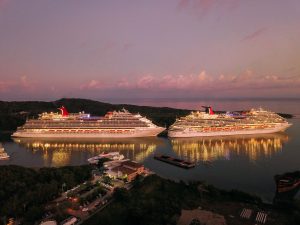Cruise ships are massive vessels that transport thousands of passengers and crew members across the seas. These ships require a tremendous amount of power to operate, and any power outage could be catastrophic. To prevent this, many cruise ships utilise Uninterruptible Power Supply (UPS) systems to ensure reliable and consistent power.
UPS systems provide emergency electrical power to critical equipment during a power outage or other power-related event. They typically consist of a battery or generator that kicks in when the main power source fails. This backup power can provide a few minutes to a few hours of uninterrupted power, allowing the critical systems to continue functioning until the main power source is restored.
The most critical systems on a cruise ship that require a UPS system are the navigation system, propulsion system, and communication systems.
UPS systems are used to protect these critical systems. For example, the navigation system on a cruise ship requires a continuous and stable power supply to function correctly. If the power supply is interrupted, it could cause the system to fail, which could lead to a collision or other problems like the propulsion system.
Communication systems are also critical on a cruise ship. In the event of an emergency, passengers and crew need to be able to communicate with each other and with the outside world. The ship's communication system must be able to function even if the power goes out.
In addition to protecting critical systems, UPS systems can also improve the efficiency of the ship's power system. By providing backup power, UPS systems can allow the ship's generators to operate at a more consistent level, which can reduce fuel consumption and improve overall efficiency.













